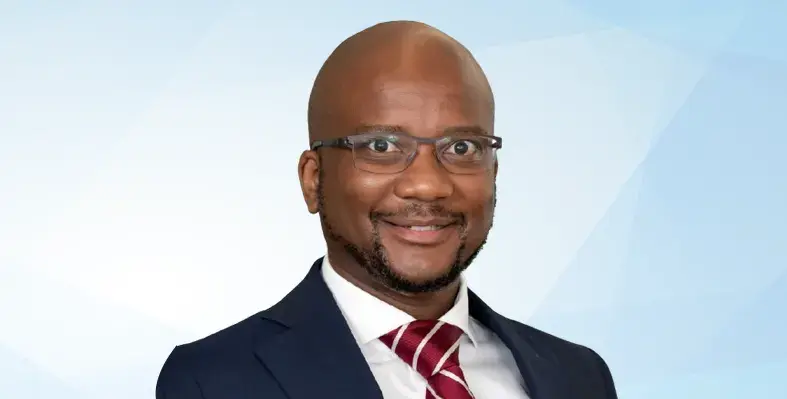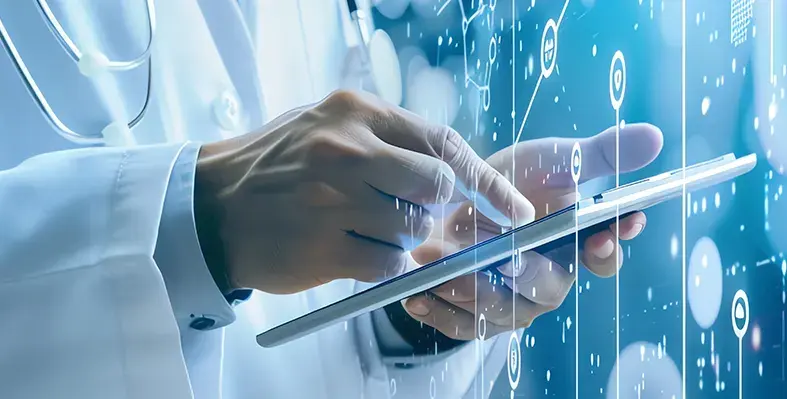
Kitso Lemo, Associate Director at Boston Consulting Group, Johannesburg. (Image source: Boston Consulting Group)
Nihmal Marrie, managing director and Partner, and Kitso Lemo, associate director at Boston Consulting Group Johannesburg, explore the transformative impact of fintech and the essential steps required to unlock its full potential
In recent years, Africa’s fintech landscape has evolved into a dynamic force, significantly advancing financial inclusion across the continent. This growth has been driven largely by innovative private sector technology solutions addressing the shortcomings of traditional financial services. However, to realize fintech’s full potential and ensure its continued success, government involvement in creating a comprehensive regulatory framework is crucial.
The rise of fintech in Africa
The fintech revolution in Africa began with Kenya's M-PESA in 2007, which introduced a mobile-based solution to the country’s inefficient banking system. This innovation quickly spread across Africa, with Africa now accounting for nearly half of the world’s mobile money accounts. Countries like Nigeria, South Africa, and Egypt are leading the way in fintech innovation.
Many African fintech companies, especially those in payments, have played a pivotal role in making transactions more efficient and reliable. Digital-native fintechs such as Yoco, Opay, Flutterwave, and Moniepoint, along with telecom-backed fintechs like MTN MoMo, M-PESA, Airtel Money, and Orange Money, have been at the forefront. Other key sectors include banking and remittances, where companies like South Africa’s Tyme Bank are gaining market share and exploring international expansion.
The sector has also attracted global investors. In 2024, Mastercard invested US$200mn in MTN Group Fintech and US$100mn in Airtel Money, further highlighting the sector’s potential to expand digital payments across Africa.
Despite these successes, significant challenges remain, particularly in rural areas where financial exclusion is still prevalent. However, fintech solutions, such as mobile money, micro-lending, and digital payment platforms, are proving effective in addressing these challenges.
South Africa, with its well-established banking system, still faces issues of underbanking, particularly among small businesses, less than 5% of which have access to working capital. To increase market penetration, the fintech sector must attract more capital, allowing businesses to scale or potentially go public through Initial Public Offerings (IPOs).
The Importance of a regulatory framework
While private sector innovation has been a key driver, establishing a strong regulatory framework is vital for the sector’s success. Regulatory oversight plays a vital role in ensuring consumer protection by holding fintech companies accountable, promoting transparency, and safeguarding financial data. A well-regulated environment also ensures market stability, helping to prevent volatility that could undermine trust in fintech solutions. Furthermore, clear and supportive regulations create an environment where fintech companies can innovate with confidence, knowing that the regulatory landscape is predictable and conducive to growth. This, in turn, fosters increased investment from both local and international sources, as investors are more likely to invest in markets that are stable and secure.
By focusing on these elements, African governments can create an ecosystem where fintech companies are encouraged to grow, innovate, and expand, while simultaneously ensuring that consumers’ interests are protected and the financial system remains robust.
The Path forward for Africa
To replicate the successes seen in South America and Asia, African governments must take a proactive stance in developing and implementing regulatory frameworks that are suited to their specific needs.
Encouraging progress is being made, such as the work of the Central Bank of West African States in driving interoperability across the fintech ecosystem. Ghana is also making strides in this area.
Here are some steps that could propel the sector forward:
- Stakeholder Collaboration: Governments should work closely with fintech companies, financial institutions, and other key players to understand the sector’s needs and challenges. Public-private partnerships can drive effective regulations that support both innovation and consumer protection.
- Regulatory Sandboxes: Establishing regulatory sandboxes can provide a controlled space for fintech companies to test new products and services while allowing regulators to adapt policies as needed.
- Capacity Building: Governments should invest in strengthening regulatory bodies by training personnel, upgrading technological infrastructure, and fostering a culture of continuous learning.
- Regional cooperation: Since fintech businesses are increasingly cross-border, African countries can benefit from harmonising regulations to ease the movement of money across the continent. Regional cooperation can increase the competitiveness of Africa’s fintech ecosystem.
- Developing skills: As the fintech industry matures, there will be increased competition for skilled professionals across various sectors, including banking, telecommunications, and insurance. Developing talent in areas such as legal compliance, product capabilities, and technology roles will be critical to unlocking value in the fintech sector.
The African fintech ecosystem has immense potential to drive financial inclusion and economic growth. Realizing this potential requires a robust regulatory framework. By learning from global successes and adopting a collaborative, proactive approach, African governments can create an environment conducive to fintech innovation. This will ensure that fintech solutions are sustainable, secure, and accessible to all, ultimately contributing to a more inclusive and prosperous future for the continent.


























